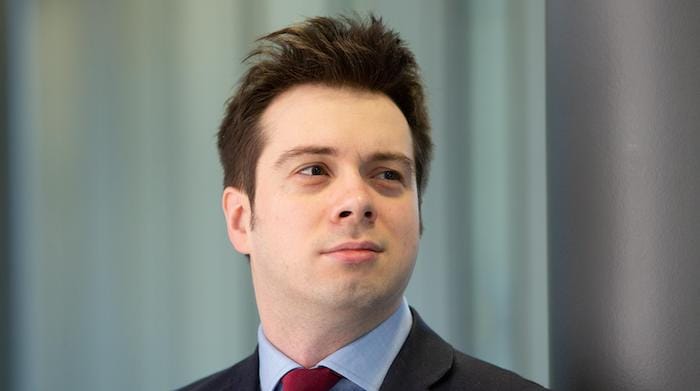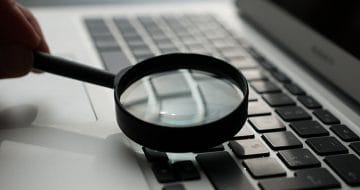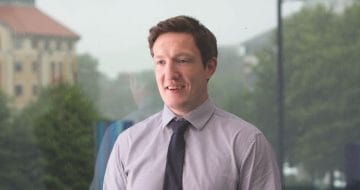Legal Cheek Careers sits down with Christopher Whitehouse, senior associate at RPC specialising in high value, complex litigation, to discuss his experience working on crypto disputes in the UK

“There have been two main catalysts for the most recent round of crypto disputes,” says RPC’s Christopher Whitehouse. The first is the bear market that has had the effect of revealing fraud. As money drains out of the crypto ecosystem, which runs very much on the principle of caveat emptor given the absence of significant regulation, crypto scams promising high returns have become apparent as withdrawal requests from victims go unanswered.
The second, more longstanding catalyst is the price volatility of cryptoassets, which gives rise to disputes against crypto platforms and exchanges. Price collapses can cause disputes when, for example, cryptoassets are being used as collateral for a loan or other crypto-related financial products. The sudden drop in value may cause such platforms/exchanges to automatically liquidate collateral, a situation which can quickly spiral into a dispute. According to Whitehouse, crypto fraud involves a battle between fraudsters and fraud hunters who are using blockchain’s qualities of transparency and immutability to prove cases in court.
Many fraudsters are adept at obscuring the origin of stolen crypto funds, for example by using mixers like Tornado Cash, where cryptoassets are mixed up with crypto belonging to others with the aim of making it difficult to distinguish illegally obtained assets from legitimate ones. In response to these efforts to muddy the waters, crypto tracers, who work closely with lawyers involved in crypto asset recovery, have improved their tracing technology so they can better follow complex chains of transactions and inputs and outputs.
You can probably tell from all of this that an eye for detail, a detective’s mindset, and an ability to handle data are strong suits for lawyers working in crypto disputes as well as civil fraud and litigation more generally — and Whitehouse is no exception. Having studied physics as an undergraduate, he found his STEM background very useful when dealing with detailed data and has combined that with the strong analytical skills he developed at university.
“I was fascinated by a system that catered for different viewpoints, that did not always have clear-cut right answers and involved a variety of interesting factual matrixes, as opposed to the right or wrong nature of solving maths problems,” says Whitehouse, upon being asked what he first attracted him to law. Having done his training contract at RPC, he quickly discovered his passion for litigation: “The adversarial element is really fun. You are waging a war, playing a game you are trying to win!”
The detective work that goes into disputes (“gradually peeling back the onion”, as Whitehouse puts it), especially fraud cases where there are generally totally different views on what happened, is a key part of what Whitehouse loves about his work. “It’s always interesting trying to guess what has happened and working through with extreme attention to detail,” he says. “You can’t beat that moment when all your hard work and creative thinking leads to a breakthrough and really pays off for your client.”
Some might wonder, given the above, if Whitehouse would be better suited to a career as a barrister. But the senior associate at RPC explains that he likes how solicitors, particularly at the early stages of a dispute, are generally “much closer to the details”. The result is that the solicitors’ work can be the difference between whether a barrister is armed with “a wooden sword or a bazooka ” when the case goes to oral argument in court.
What’s more, there are few better-equipped firms than RPC to thrive in crypto disputes. According to Whitehouse, the firm identified cyber fraud early on as a key growth area and his department has been really supported by RPC in developing the practice. “We have received incredible amounts of freedom,” he explains, pointing to the founding of the Crypto Fraud and Asset Recovery (CFAAR) network by members of the firm alongside several other law firms and asset recovery professionals.
CFAAR, launched last year, acts as a forum of discussion between lawyers and other professionals in the fraud and asset recovery space with an interest in crypto and law on the subject of crypto disputes. CFAAR has hosted several events to give leading lawyers and asset recovery professionals an opportunity to share their thoughts on the latest important issues and trends, and Whitehouse emphasises that “everyone practising in this area is welcome”.
When asked about what trainees could expect at RPC, Whitehouse answered that RPC trainees can expect to be “doing meaningful work on some of the biggest and most interesting cases with really impressive people”. Whitehouse explains he has always “relished the culture and the work” and is unashamedly guilty of getting really invested in the case he is working on.
As for top trainee tips, Whitehouse underlines that motivation is key. He says: “To be a great lawyer, not just a good lawyer, you need to find your motivation so that you get into the mindset of going the extra mile. We want people who are hungry to learn and get involved because we really want our people to succeed and enjoy their work.”
Christopher Whitehouse will be speaking at ‘Crypto disputes — with RPC’, a virtual student event taking place tomorrow (Wednesday, 5 October). You can still apply for one of the final few places.
About Legal Cheek Careers posts.


